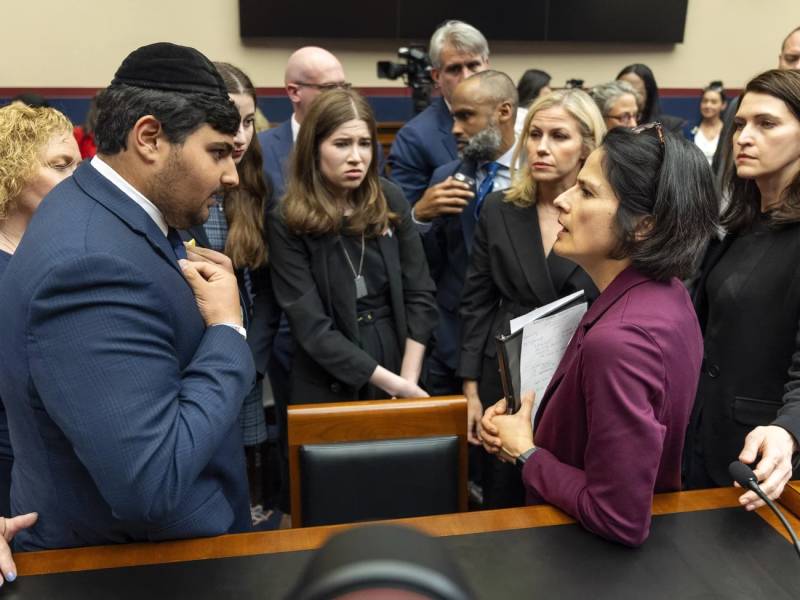“Like many American Jews, I once considered antisemitism a threat largely emanating from the right,” he wrote.
One of the most vivid examples was in 2017, when white supremacists marched in Charlottesville, Virginia, chanting, “Jews will not replace us.” That year, Jewish cemeteries were vandalized. There were bomb threats against Jewish Community Centers.
Then, in 2018, a man walked into the Tree of Life synagogue in Pittsburgh during Shabbat services and killed 11 people.
“‘In every generation, somebody rises up to kill us.’ That’s what we say in the Seder,” Ioffe says.
That context helps explain why there is now so much debate over demonstrations in support of Palestinians — a debate over how to define antisemitism and what to do about it.
Politics and antisemitism
Democrats and Republicans both say they want to fight antisemitism, but that might be where the agreement ends.
House Republicans have held hearings into antisemitism in schools, and the House voted on a bill that would adopt a legal definition of antisemitism to enforce civil rights laws at schools. President Biden also gave a major speech on the topic.
To Foer, the fact that politicians are even talking about antisemitism is important. “But on the other hand,” he says, “it inevitably becomes a hugely polarized thing, and you have Republicans in Congress trying to score political points.”
Ioffe similarly sees many of those efforts as disingenuous. She describes the political back and forth over antisemitism as “cynical opportunism.”
“To me, one of the things that’s … most dangerous for Jews is when we become a political football where both our needs, our safety, our humanness is completely erased,” she says.
Anti-Zionism vs. antisemitism
Amid demonstrations in support of Palestinians, many are now grappling with the question of when, or if, anti-Zionism is antisemitic.
“You can absolutely be anti-Zionist without being antisemitic,” Ioffe says. “One of the main ways that you do that is by being Jewish.”
She says people who are rightly “incensed and horrified” by the humanitarian crisis in Gaza can have noble intentions but blunder into antisemitic territory when talking about anti-Zionism.

